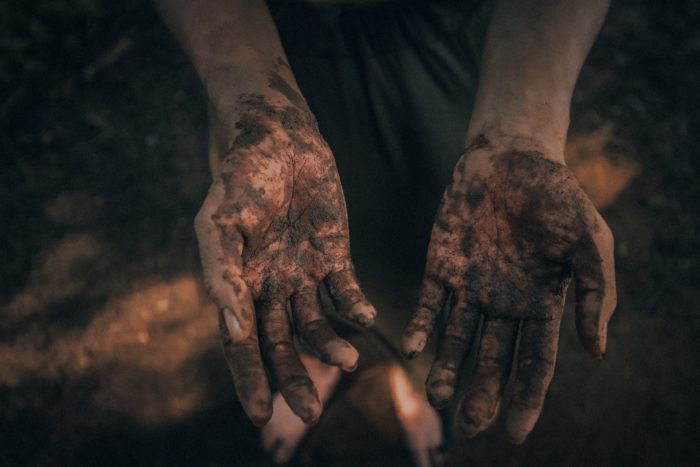In The Light of What They Suffered

We struggle when confronted with suffering.
Suffering is almost impossible to face head-on. When we see others experience it, we wince in sympathy but look away in dread. The imagined or remembered pain warns us to dodge it; while we feel for the person hurting, we don’t want to feel the hurt itself. Likewise when the suffering is our own, we devise ways to cope that might lessen its impact, in avoidance, denial, or escape. What is the right response to anguish? Though dependent on circumstances and never one-size-fits-all, an effective approach is presence. We speak of friends who are “there” for us, but that ambiguous place changes often to suit the need.
In the short story And of Clay Are We Created by Isabel Allende, suffering is rampant after a cataclysmic mud slide in a rural region. Estimates of 20,000 dead circulate, but what captures the attention of the nation is one survivor, a thirteen-year-old girl, Azucena, trapped up to her neck in the mud. She is brought to the world via the reporting of Rolf Carlé and his camera crew.
To ‘be there’ for someone means to invest in them.
Rolf Carlé “…had been a familiar figure in newscasts, reporting live at the scene of battles and catastrophes with awesome tenacity. Nothing could stop him….his equanimity in the face of danger and suffering; it seemed as if nothing could shake his fortitude or deter his curiosity.” Until he encounters Azucena. While his previous coverage of disasters had been for his own benefit in ratings and recognition, here his attention is focused solely on her. He tries mightily with all the means at his disposal to dig her out and rescue her. He is invested. And he is also changed. Viktor Frankl said: “What is to give light must endure burning.” When Rolf Carlé shines the spotlight of compassion on Azucena, there is a profound outcome for him too.
“Presence is a noun, not a verb;”
“It is a state of being, not doing.” So says Debbie Hall in her short reflection The Power of Presence from the collection This I Believe edited by Jay Allison. Like the Rolf Carlés of the world who want to fix and change, people seek to alleviate suffering with action. But there comes a point when suffering can no longer bear action and simply needs presence, and that is a true intimacy that ultimately enacts transformation. Conversely, in the final piece for this session, the ‘poem’ Eucharist by R. Voight, he tells us “You don’t dogmatize about it. You DO it.” Here a traditional concept becomes a verb, which is yet another way to ‘be there.’ Catholics believe in the real presence of Jesus in the Eucharist and this calls us in turn to action, even when it means doing nothing but bearing witness with our concentrated attention.